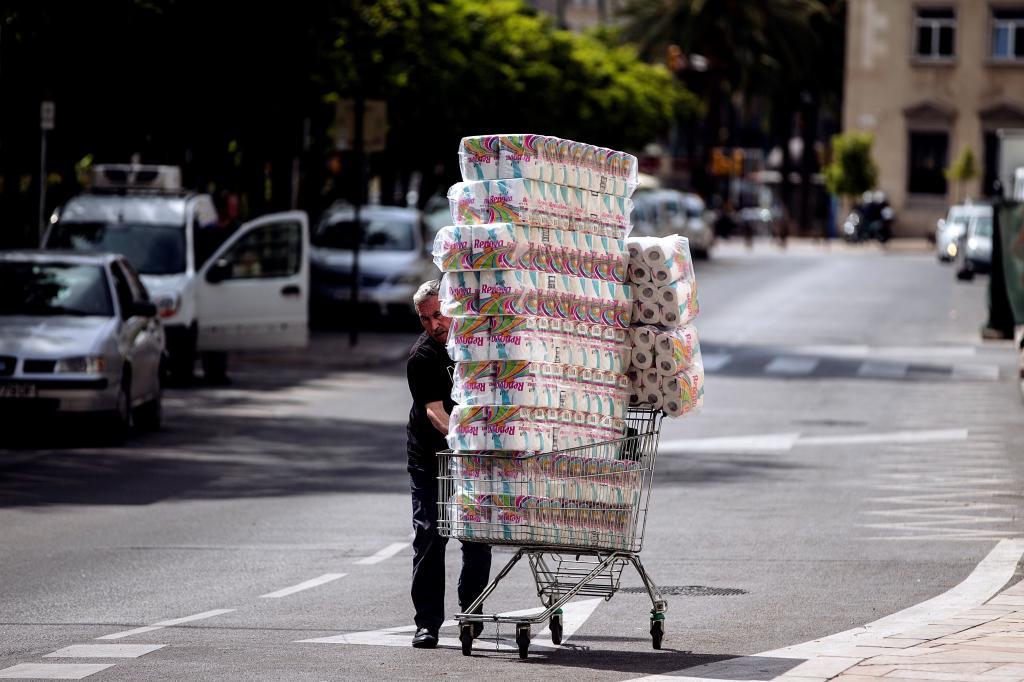In these last days of alarm due to the coronavirus, peculiar scenes have been experienced in some supermarkets, especially in Madrid, in which consumers were seen with shopping carts filled to the top with rolls of toilet paper . These images have been circulated on social networks and have been published by the media.
In fact, according to data from the consulting firm Kantar Worldpanel, sales of cellulose products (toilet paper, napkins, kitchen paper) have increased by 129% these days compared to the previous two months. The consumerist excess of this specific product generates perplexity, but it has a certain explanation.
The consumer follows patterns of behavior that, in cases of crisis, are altered. According to María José Lechuga, expert in consumer habits and purchasing processes, since the coronavirus appeared in our lives, "human beings have reacted with extreme patterns, to an emergency situation, such as filling our pantries with a possible situation of food shortage".
Even in countries with a lower incidence of coronavirus, consumers "have launched into compulsive shopping in large stores for food and basic necessities." The main products that have increased their sales the most compared to a previous period are sanitary products, face masks, disinfecting gels and toilet paper.
Hygiene gives us a sense of control
"In each country it is reacting in a way by imitation and in Spain, toilet paper fever has been the most striking behavior. This product does not really have any sanitary or hygienic power against the coronavirus, but being a hygiene product the Buying it makes us feel more relaxed and relieved, thus offering a placebo effect, "explains the expert.
"According to psychologists, people calm their anxiety in situations that they cannot predict by trying to control some situations that they think they can control, such as compulsive buying of what they think they will need. Toilet paper represents control, because it is used for cleaning and tidying ", explains Niki Edwards, a researcher at the Queensland University of Technology (Australia).
"With the coronavirus crisis, people fear losing that control, but when they buy this product, they feel that they still have control over hygiene and cleanliness," says Lechuga.
Buy "what the neighbor"
When people think that they have to stay in the house for a long time, "they collect, above all, hygiene products, cleaning ... among which are toilet paper, paper napkins, cellulose ... precisely because they are products that you don't buy on a daily basis ", explain sources in the sector.
There is another element that can explain this phenomenon and that is that toilet paper is a bulky product, which takes up much more space on the supermarket shelf than other products such as cans of mayonnaise or packages of rice. So it ends faster. "What you have on the shelves, by units, is less than what canned food occupies, for example, and as the space is more limited it ends sooner. What happens is that seeing the empty shelf to the consumer overwhelms him because he thinks that that product is going to end, that's why I buy more ", explain these sources.
From Nielsen they point out that, in fact, in the last week of February the growth of paper sales was not so great because the idea of staying at home was not yet contemplated. So shopping has been focused these days.
Furthermore, according to Lechuga, "sociologically, human beings behave gregariously, without questioning the probabilities of something happening, but rather reacting as the herd or the group of members reacts. So when you see something happening around you The same can happen to you, so you must be prepared or try to avoid it. "
According to the criteria of The Trust Project
Know more- Australia
- Spain
Royal HouseThe Kings' privileged relationship with the White House
Munich Conference González Laya admits that Spain now has a different position than the EU with Venezuela
Weather The heat of May seeps into the month of February

